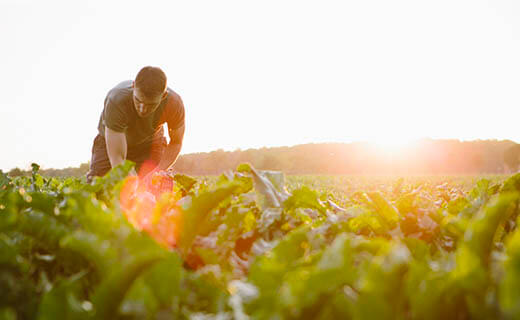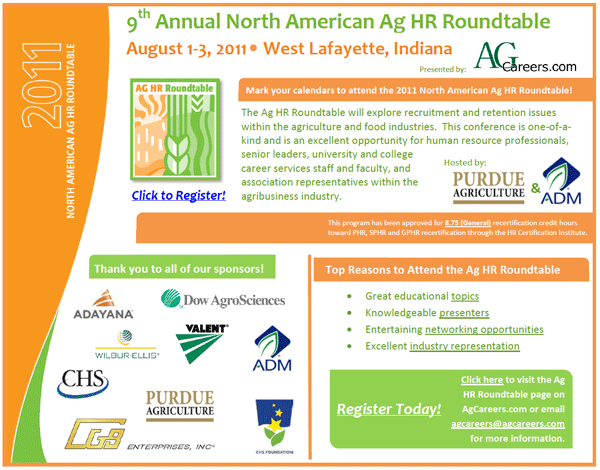- Candidates
- Login
- Set Up Account
- Create a Job Alert
- Search Tools
- Resources
- Employers

Today’s assignment: Go in the yard. Smell the soil.
Just because WSU students can now earn an Organic Agriculture certificate online, doesn’t mean they won’t be getting their hands dirty. Enrollees in Soil Science 101 use their own gardens as laboratories, crumbling dirt in their hands, adding water to make mud and sniffing the soil to determine the presence of actinomycetes (bacteria that break down organic matter, creating that sweet, earthy smell that scents the air after it rains.) Then, presumably after washing up, students go back to their computers and take a video field trip to WSU’s Tukey Orchard.
And, just because classes are taught online, it doesn’t mean students won’t meet face-to-face. Enrollees in Agriculture and Food Systems 445/545 can spend their spring break visiting farms, wineries, ciderhouses, slaughterhouses, mills, food production centers and co-ops. These non-mandatory excursions explore food production techniques and show students how sustainable agricultural methods are applied in the real world.
It’s all part of WSU’s online Organic Agriculture certificate program, which combines high-tech course delivery with back-to-basics farming techniques. The program is the first of its kind, and it is providing students with expertise in an industry that’s booming.
The U.S. organic food industry has grown at an impressive rate of nearly 20 percent each year for more than a decade and industry experts are predicting the trend will continue or accelerate. Fears about pesticides and herbicides, and a big push toward buying locally, are spurring the rapid growth.
Daniel Bernardo, dean of the College of Agricultural, Human, and Natural Resource Sciences at WSU expects the expansion to continue as businesses tap into the growing market, industrializing what was once a low-key business run as much for principle as it was for profit. “The largest food retailers in the nation, including Wal-Mart, are making major investments in developing their organic product lines,” he said.
But while the industry expands and job opportunities increase, so does the competition for work.
Tom Cloud of Filaree Farm, which grows more than 100 varieties of garlic and about 40 types of heirloom apples, usually gets one or two applicants for summer positions. This year, after posting a notice online, he received 20-30 applications from as far away as Zimbabwe and England. “Young people want to learn environmentally-conscious skills and do work that’s real,” Cloud said. But turning a summer job into a career requires more than idealism. It takes college-level skills, including a “strong knowledge of science,” Cloud said.
The WSU online Organic Agriculture program provides students with a solid background in the agricultural sciences, including an understanding of complex agriculture and food systems. Students develop knowledge and skills that are applicable to all industries and agencies involved in the food chain – from production, processing, and delivery to policy, regulation, and education.
The certificate prepares students and professionals working in agriculture or related fields for a career that requires in-depth knowledge of organic systems, but the benefits of learning about organic agriculture extend beyond employment opportunities.
According to Anne Schwartz, president of Washington Tilth Producers and owner of Blue Heron Farm in the Skagit Valley, agricultural education gives us a greater appreciation for the complex relationship between human activities and the natural world. “If you don’t know where your food comes from, you can’t understand what kind of impact your food choices make on our world,” Schwartz said.
Thanks to the online Organic Agriculture certificate program, that awareness of our place in the world needn’t always begin in a college classroom. Now it can start in the backyard, with the simplest of acts: taking a handful of earth, feeling it crumble in your palm, smelling the clay and sand and rain.
For complete information, including who should earn the certificate and how to apply to WSU, visit http:\\online.wsu.edu/organicag or call 800-222-4978.
*Information for this article was taken from “Going Online with Organic” by Richard Miller, published in Revolutions Magazine Spring/Summer 2008 issue; and from posts on the WSU Online Degrees blog (http://wsu-online.blogspot.com) by Richard H. Miller/CDPE, and by Kathryn R. Sullivan/CAHNRS Marketing and News intern.
